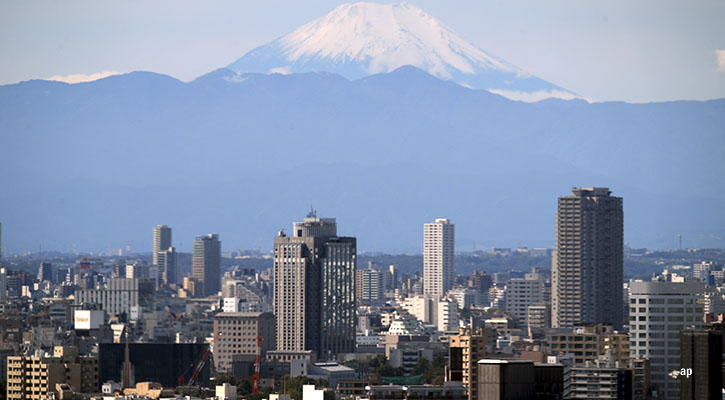The information contained within is for educational and informational purposes ONLY. It is not intended nor should it be considered an invitation or inducement to buy or sell a security or securities noted within nor should it be viewed as a communication intended to persuade or incite you to buy or sell security or securities noted within. Any commentary provided is the opinion of the author and should not be considered a personalised recommendation. The information contained within should not be a person's sole basis for making an investment decision. Please contact your financial professional before making an investment decision.
 Five Japan Equity Funds Morningstar Analysts Are Watching Closely
Five Japan Equity Funds Morningstar Analysts Are Watching Closely
Japan equities are back in the headlines, and these funds stand to benefit from the country's ong...
 Spotlight: Best-Rated Japan Funds For Your Portfolio
Spotlight: Best-Rated Japan Funds For Your Portfolio
It hasn't been a great decade for Japan index investors, despite the latest rally, but these fund...
 'Japan's Huge Investment Cycle Has Just Begun'
'Japan's Huge Investment Cycle Has Just Begun'
VIDEO: Pictet manager Sam Perry is optimistic that the return of inflation in Japan will trigger ...
 What Does Japan's Rate Rise Means for Investors?
What Does Japan's Rate Rise Means for Investors?
Not much in the markets has changed following the BoJ's historic rate rise. What happens next cou...
 Japan Raises Rates for First Time in 17 Years
Japan Raises Rates for First Time in 17 Years
Cost of borrowing now in positive territory after Bank of Japan increases interest rates
 Are FTSE Mining Companies Cheap Right Now?
Are FTSE Mining Companies Cheap Right Now?
Mining companies are operating in a challenging environment but could now be the time to top up o...
 Advice for George Osborne and Stock Market Regrets
Advice for George Osborne and Stock Market Regrets
THE WEEK: Morningstar columnist Rodney Hobson provides two pieces of advice to George Osborne, an...
 How to Find Solid Dividend-Paying Stocks
How to Find Solid Dividend-Paying Stocks
Businesses that have competitive advantages within their industry are good candidates for dividen...
 10 Top-Performing Funds in the UK
10 Top-Performing Funds in the UK
Morningstar reveals the top 10 best performers over the last five years
 Fund Research: Europe’s Shining Stars
Fund Research: Europe’s Shining Stars
Morningstar OBSR reveals the top funds for investors seeking exposure to European equities
 ECB Cuts Rates and Warns of Trade War Risks
ECB Cuts Rates and Warns of Trade War Risks
European Central Bank also lowers growth forecasts and upgrades its inflation projections.
 Amundi’s Fannie Wurtz: Why Women Should Join the Asset Management Industry
Amundi’s Fannie Wurtz: Why Women Should Join the Asset Management Industry
Top executive at French asset manager talks about progress, her career challenges and why a suppo...
 ‘Ben Whitmore Is No Neil Woodford, But You Should Still Do Due Diligence’
‘Ben Whitmore Is No Neil Woodford, But You Should Still Do Due Diligence’
Investors excited by the former Jupiter star manager’s solo venture must read the smallprint befo...
 The Best-Performing ETFs of the Month for UK Investors
The Best-Performing ETFs of the Month for UK Investors
Updated: UBS Solactive China Technology and Invesco MSCI China Technology All Shares Stock Connec...
 Can Bitcoin Bounce Back Under Trump?
Can Bitcoin Bounce Back Under Trump?
Trade tariffs and recession fears have made investors nervous, but the White House is still crypt...

Jonas Lindmark has been editor and head of fund analysis at Morningstar Sweden since August 2000. Before that he was personal finance editor and designed fund ratings during 9 years at the weekly business magazine Affärsvärlden.